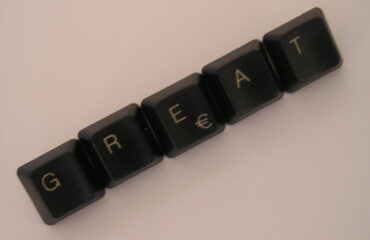Nobody likes paying taxes, but as Benjamin Franklin has been quoted as saying, “In this world nothing can be said to be certain, except death and taxes.” Optimum Systems Online clients don’t want financial penalties any more than you do, so we’ve taken a few moments to assess some of the most common tax mistakes made by small businesses (so you can avoid them).
- Don’t Wait Until Year-End. Many small businesses, particularly brand new ones, may be surprised to learn that they are required to pay quarterly taxes. If you’re just starting out, you may want to check in with a financial advisor or tax professional to ensure that you are meeting your requirements. Although there are exceptions to this requirement, based on your income, you might still be best to get into the practice of allocating a portion of your income to your taxes and paying them quarterly. A year’s worth of surprise penalties are not something you want to risk dealing with.
- Not Knowing Your Deductions. There are tons of expenses that can be deducted from your taxes when you become a small business owner. Many of them are deductions that you may not realize at first. Something as simple as buying a new laptop may mean a deduction when the time comes to do your taxes, but if you’re not keeping track, and you don’t know where you’re spending your money, you’re probably leaving some cash on the table in terms of deductions. In short, find a way to keep track of everything. If you’re driving around to meet clients, track your mileage. If you’re buying office supplies, document it. And if you’re looking for ways to organize your expenses, there is a world of apps out there ready to help you out. Consider Expensify for a well-rounded way of tracking time, miles, and everything else expense-related. Need help with your accounting? QuickBooks and Mint offer easy-to-understand platforms that can help you maximize your business.
- Being Afraid of the Home Office Deduction. A deduction is a deduction, right? As long as you’re legitimately using a dedicated space in your home for business purposes, doesn’t it only make sense to claim that space? It seems that this particular deduction has frightened work-at-homers for a while, worrying them that this would raise a red flag for the IRS to hail them with an audit. If you can account for the space in your home being used solely for business reasons, you have nothing to worry about.
- Mixing Up Expenses. There are two key expenses that many, many business owners mix up: equipment and supplies. If you claim these incorrectly, the IRS could potentially determine that you’re not eligible for the deduction that you really would have deserved, had you put it on the correct form. To put it simply, things that you’ve purchased over the year that you expect to last for a little while like computers, printers, and phones are expenses (capital expenditures). Smaller items that you use on a day-to-day basis that won’t last that long like pens, pencils, paper, and ink are simply supplies. You can write off equipment in a variety of options: you can either write off a portion for each year in which the equipment is in use, or you can write off the full amount right away.
- Not Accounting for Your Freelancers. If you’ve paid a freelancer, contractor, attorney, or other individual that doesn’t directly work for you over $600, you are required to send them a 1099-MISC. This form also needs to be sent to the IRS. Penalties can ensue if you don’t properly file your 1099s. The amount for a required 1099 changes every year or so, so make sure you do your homework every year.
- Recording the Gifts that Keep Giving. You may be a super generous soul, but don’t get trapped under the impression that your generosity can lead to a generous write-off come tax time. In reality, you can only deduct $25 per gift. That said, if you’ve been getting super generous with gifts for your clients, make sure you’re taking care to only claim the first $25 of each present. The IRS will certainly raise an eyebrow if you have thousands of dollars in gifts but only a handful of deserving clients.
- Not Knowing Your Legal Entity. When you started your business, if you’re like many small business owners, you faced the debate of “What am I?” when you were trying to choose your legal entity. Are you an LLC? Should you be a Sole Proprietorship? What is an S Corporation? These are questions that can be super confusing to many, and often times, the wrong choice can lead to paying extra money in the end. If you’re not sure how your business should be classified, meet with a tax advisor or CPA to help you figure out how you can best maximize your business.
- Losing the Lines of Personal and Professional. It’s likely that you’ve spent so much time networking and getting your business going that you might have lost sight of the line between business and pleasure. When it comes to taxes, this can mean huge implications. Make sure that you are stringent about maintaining records that separate your household bills from your company’s business. It will make everything easier come tax time, and it could help you avoid some serious legal implications in the long run.
Have you learned about other common tax mistakes the hard way? We welcome your thoughts and learning experiences. Tell us your thoughts in our comments section below.





